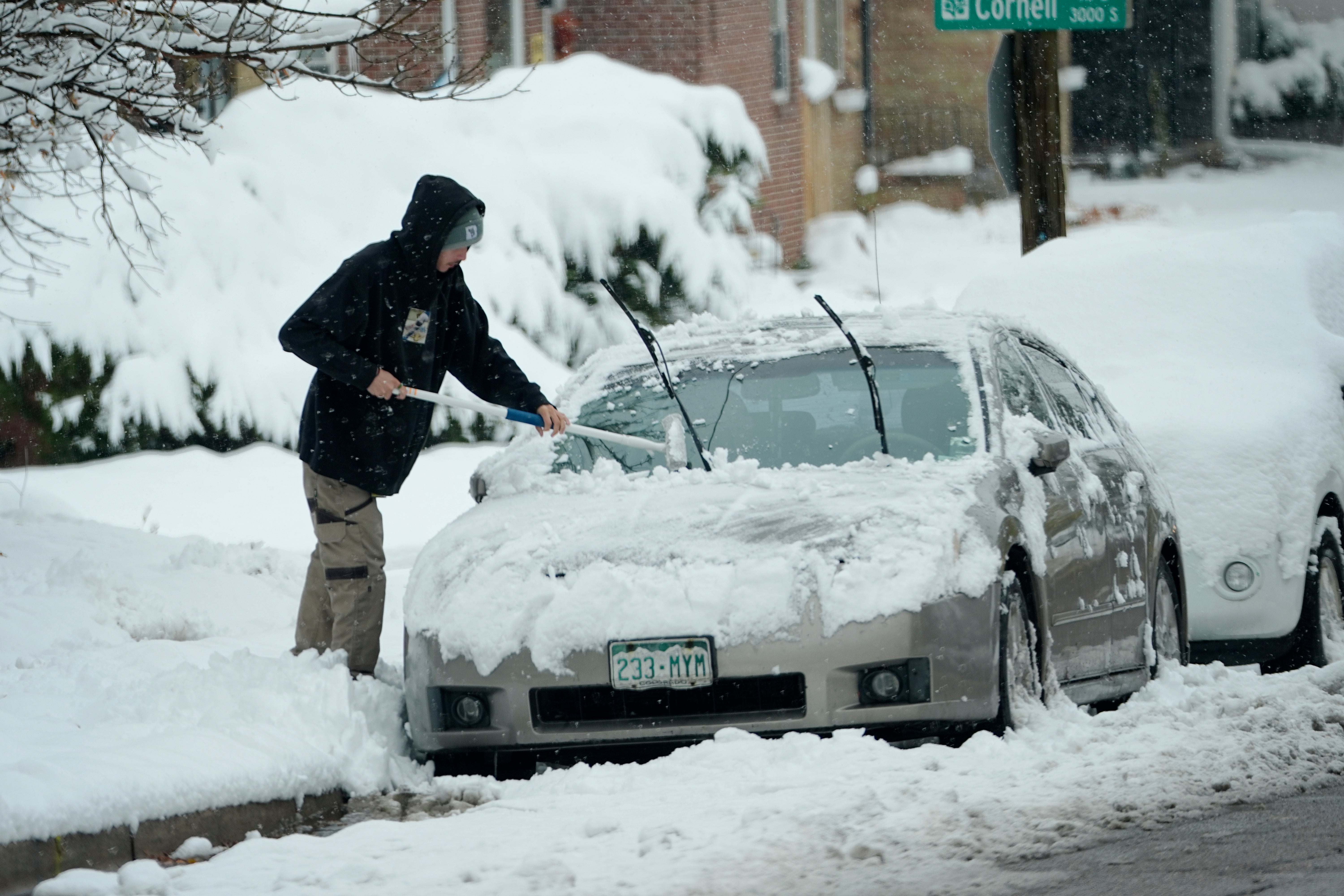Residents in several states are walloped with winter weather and are warned about dangers when traveling
Western states will see heavy snow before the end of the week
Winter storm advisories have been issued for multiple states through the end of the week.
The warnings come just days after an early-season winter storm pummeled the West. It brought massive amounts of snow to Colorado and New Mexico, resulting in the deaths of more than 100 pronghorns on icy roads. One Colorado town received nearly 55 inches of snow, according to The Denver Gazette. The inclement weather also left tens of thousands of people without power.
Today, a winter storm warning is forecast to remain in effect in Washington state’s western Okanogan County through the mid-afternoon, with heavy snow and accumulations of up to five inches over Washington Pass.
For the West Slopes and the North Central Cascades and Passes, heavy snow is expected at or above elevations greater than 4,000 feet, where additional snow accumulations between four and eight inches are expected.
“Travel could be very difficult including SR 20 and Washington Pass. Gusty winds could bring down tree branches,” the National Weather Service warned.
Down the West Coast, Californians have also been subject to winter conditions, and an advisory was in place through Friday night in the state’s central region. Moderate-to-locally heavy snowfall is forecast for areas around the Sierra Nevada mountains.
The agency said travel could be difficult.
“Be prepared for slippery roads. Slow down and use caution while driving,” it said. “If you are going outside, watch your first few steps taken on stairs, sidewalks, and driveways. These surfaces could be icy and slippery, increasing your risk of a fall and injury.”
And, a blizzard warning is in effect through early Friday in southwest Alaksa, with blowing snow causing whiteout conditions at times for areas west of the Kuskokwim River and Kuskokwim Delta North residents.

Snowfall between four to eight inches and strong winds will reduce visiblity in the area.
The Great Basin and the Rockies will receive a mix of precipitation on Thursday and Friday.
On the East Coast, an area of low pressure will bring a potential wintry mix to Maine on Friday.
But, most of the country will see seasonable to above average temperatures on Thursday and Friday.
Next week, AccuWeather forecasters said the Great Plains will see another round of heavy rain and snow for the first time this season.
The US can expect less snow this winter, largely due to a weak La Niña climate pattern. Climate change has contributed to winter becoming the fastest-warming season across many regions.
Join our commenting forum
Join thought-provoking conversations, follow other Independent readers and see their replies
Comments
Bookmark popover
Removed from bookmarks